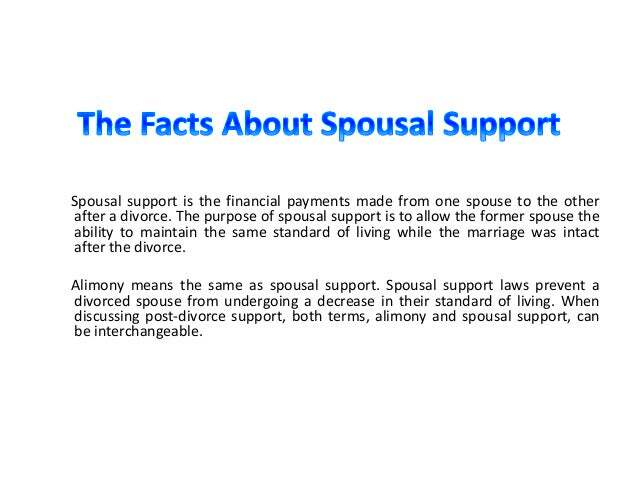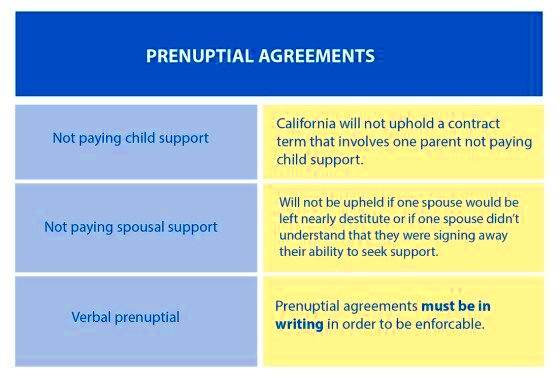Key Facts About Spousal Support Laws in Arkansas
Spousal support or alimony is important for maintaining fairness and stability after a divorce. In Arkansas the laws regarding support aim to address the financial needs of both spouses, particularly when there’s a significant difference in their incomes or earning potentials. The goal is to offer aid to the spouse with lower earnings to assist them in adjusting to their life after the divorce. While grasping these laws may seem challenging with the knowledge you can make better choices.
Eligibility Criteria for Spousal Support

In order to assess your eligibility for spousal support in Arkansas a few important factors come into play. Lets take a closer look at them.
- Duration of Marriage: Longer marriages often result in higher chances of receiving support. Typically, a marriage lasting 10 years or more might be seen as more deserving of support compared to shorter marriages.
- Financial Needs: The court assesses the financial needs of the requesting spouse, including their ability to maintain a standard of living similar to that during the marriage.
- Income and Earning Capacity: A significant difference in income or earning potential between spouses can influence the decision. For instance, if one spouse sacrificed their career for homemaking, this can be a significant factor.
- Contributions to the Marriage: Non-financial contributions, like raising children or supporting the other spouse’s career, are also considered.
Based on what I have seen dealing with these requirements can be an emotionally challenging process. A friend of mine faced a situation and discovered that delving into these aspects thoroughly gave them the clarity and assurance to handle their case effectively.
Types of Spousal Support Available

In Arkansas there are different types of spousal support designed to meet various needs and situations. Let’s take a closer look at the details.
| Type of Support | Description |
|---|---|
| Temporary Support | Provided during the divorce proceedings to help the lower-earning spouse cover living expenses until a final decision is made. |
| Rehabilitative Support | Aimed at helping the recipient gain education or training to become self-sufficient. This support is often limited to a specific time period. |
| Permanent Support | Granted in cases where long-term support is necessary, typically for long marriages where one spouse may not be able to become self-sufficient. |
| Transitional Support | Assists the receiving spouse in adjusting to the post-divorce lifestyle, often covering a short period immediately after the divorce. |
The support options available cater to various stages and requirements. During my cousins divorce she discovered that grasping these choices aided her in securing more favorable terms and reaching a resolution aligned with her aspirations.
How Spousal Support is Calculated

Determining spousal support in Arkansas isn’t a matter of simply inputting figures into a formula. It’s more like a nuanced process where the court carefully weighs different factors to achieve fairness. The assessment considers aspects that mirror the financial situation and future requirements of each spouse.
Here’s a sneak peek at the elements that come into play in the computation process.
- Income Levels: The current income of both spouses is a starting point. The court examines not just salary but also any other sources of income, like investments or rental properties.
- Financial Needs and Obligations: Expenses such as housing, healthcare, and child support are considered. The goal is to ensure the lower-earning spouse can maintain a reasonable standard of living.
- Marital Standard of Living: The court aims to approximate the lifestyle the couple enjoyed during the marriage, adjusting as necessary based on the changes post-divorce.
- Spousal Contributions: Contributions to the marriage, including homemaking and supporting the other spouse’s career, are factored in to recognize non-monetary support.
From what I have seen the journey can be quite daunting. I recall a dear family friend navigating a divorce who found the weight of the emotional and financial aspects to be quite heavy. However gaining insight into the process and seeking support proved to be impactful for them.
Duration and Modification of Spousal Support
The length and potential changes to spousal support can differ significantly based on the unique details of each situation. Here are some key points to keep in mind:
- Duration: Spousal support is often awarded for a specific period, particularly in cases involving rehabilitative support. Permanent support may be awarded in longer marriages or where one spouse cannot become self-sufficient.
- Modification: Changes in circumstances can lead to modifications. If the paying spouse experiences a significant decrease in income or if the receiving spouse becomes financially independent, either party may request a modification.
My aunts story serves as an illustration of this. Following her divorce her spousal support was determined for a duration. However when her ex husband faced job loss they needed to reevaluate and modify the agreement. This real life example emphasizes the importance of adaptability and empathy in navigating situations.
Factors Influencing Spousal Support Decisions
In Arkansas various factors come into play when determining spousal support. The court considers a mix of personal and financial situations to reach a judgment.
- Length of Marriage: Generally, longer marriages are more likely to result in spousal support. This reflects the long-term economic partnership established over the years.
- Financial Resources: The court assesses the financial resources and earning capacities of both spouses, including any disparities that might warrant support.
- Contributions to the Marriage: Contributions aren’t just about money. The support a spouse provided in managing the household or raising children plays a significant role.
- Impact of Divorce: How the divorce has impacted the recipient’s financial stability and future prospects is also a crucial consideration.
I have witnessed how these aspects come into action. A friend who stood by her husbands career for a long time faced difficulties when their marriage came to an end. The court considered her contributions which had an impact on the support she received.
Legal Procedures for Requesting Spousal Support
Seeking support from your spouse entails going through a legal procedure that may appear overwhelming at first. Nevertheless by breaking it down into manageable steps the experience can become more manageable. Here’s a simple roadmap to assist you in grasping the process better.
- File a Petition: The process starts when you file a petition for spousal support with the court. This document outlines your request and provides a basis for why you need financial assistance.
- Provide Financial Information: Both parties will need to disclose their financial situations. This includes income, expenses, and assets. Transparency is crucial here, as it helps the court make an informed decision.
- Attend Hearings: You may need to attend court hearings where both parties present their cases. This is an opportunity to explain why support is necessary and how much you believe is fair.
- Negotiations and Agreements: Often, spouses can negotiate a settlement outside of court. If an agreement is reached, it must be submitted to the court for approval.
- Court Decision: If no agreement is reached, the court will make a decision based on the presented evidence and legal criteria. This decision will outline the amount and duration of support.
As I think back to a moment in my life I recall a family friend who approached this process with both nervousness and optimism. Having a clear understanding of the steps involved and the support of a lawyer greatly eased her path transforming what could have been a situation into something more manageable.
Common Misconceptions About Spousal Support
There are many myths and misunderstandings about support that can cause confusion. Let’s set the record straight on some of the most prevalent misconceptions.
- Spousal Support is Automatic: Many believe that spousal support is granted automatically in every divorce. In reality, it’s not guaranteed and depends on various factors like income disparities and marriage duration.
- It’s Always Permanent: People often assume spousal support is a lifelong commitment. However, support can be temporary or rehabilitative, depending on the case’s specifics.
- Only Women Receive Support: Although traditionally women have received spousal support, men can also request and receive support, especially if they are the lower-earning spouse.
- Spousal Support Equals Child Support: Spousal support is separate from child support. While both are financial responsibilities, they address different needs and are calculated differently.
Based on what I’ve noticed I’ve witnessed the impact of these misunderstandings on individuals expectations and choices. For example a friend was taken aback to discover that assistance wasn’t guaranteed which heightened her anxiety during the divorce proceedings.
Frequently Asked Questions
When it comes to support for a spouse, individuals tend to have a few inquiries. Here, we present a collection of questions along with their corresponding responses.
- How is spousal support different from alimony? They are essentially the same. Both terms refer to financial support provided to a spouse after a divorce.
- Can spousal support be modified? Yes, spousal support can be modified if there are significant changes in circumstances, such as a job loss or improvement in financial status.
- How long does spousal support last? The duration of spousal support depends on the specifics of the case. It can be temporary, rehabilitative, or permanent, based on factors like the length of the marriage and the recipient’s financial needs.
- What happens if the paying spouse fails to make payments? If the paying spouse doesn’t comply with the support order, legal actions can be taken to enforce the payment, including wage garnishment or other court actions.
I’ve come across several individuals who feel comforted by these responses as they offer insight into what to anticipate and how to navigate their spousal support agreements. Having precise and transparent information can greatly impact ones experience during a period.
Conclusion
Navigating the complexities of spousal support laws in Arkansas can feel like navigating a maze filled with legal jargon and emotional hurdles. However as we delve into the details we uncover the importance of understanding how spousal support is determined, its duration, potential for modifications and addressing common misconceptions. This knowledge equips you with the tools to navigate this intricate landscape with greater ease.
Based on what I’ve seen and what my friends and family have shared with me I’ve come to realize that spousal support isn’t a solution that fits everyone. Every situation is different and the support given is heavily shaped by the details of the marriage and the individual needs of the spouses. The emotional impact of these choices should not be overlooked and having access to information along with expert advice can really make a difference.
If you are thinking about asking for support or replying to a request keep in mind that the law seeks to be fair and equitable. Although the procedure may seem daunting approaching it with information and a focused mindset can assist you in reaching a conclusion that takes into account the legal and personal elements of your circumstances.


